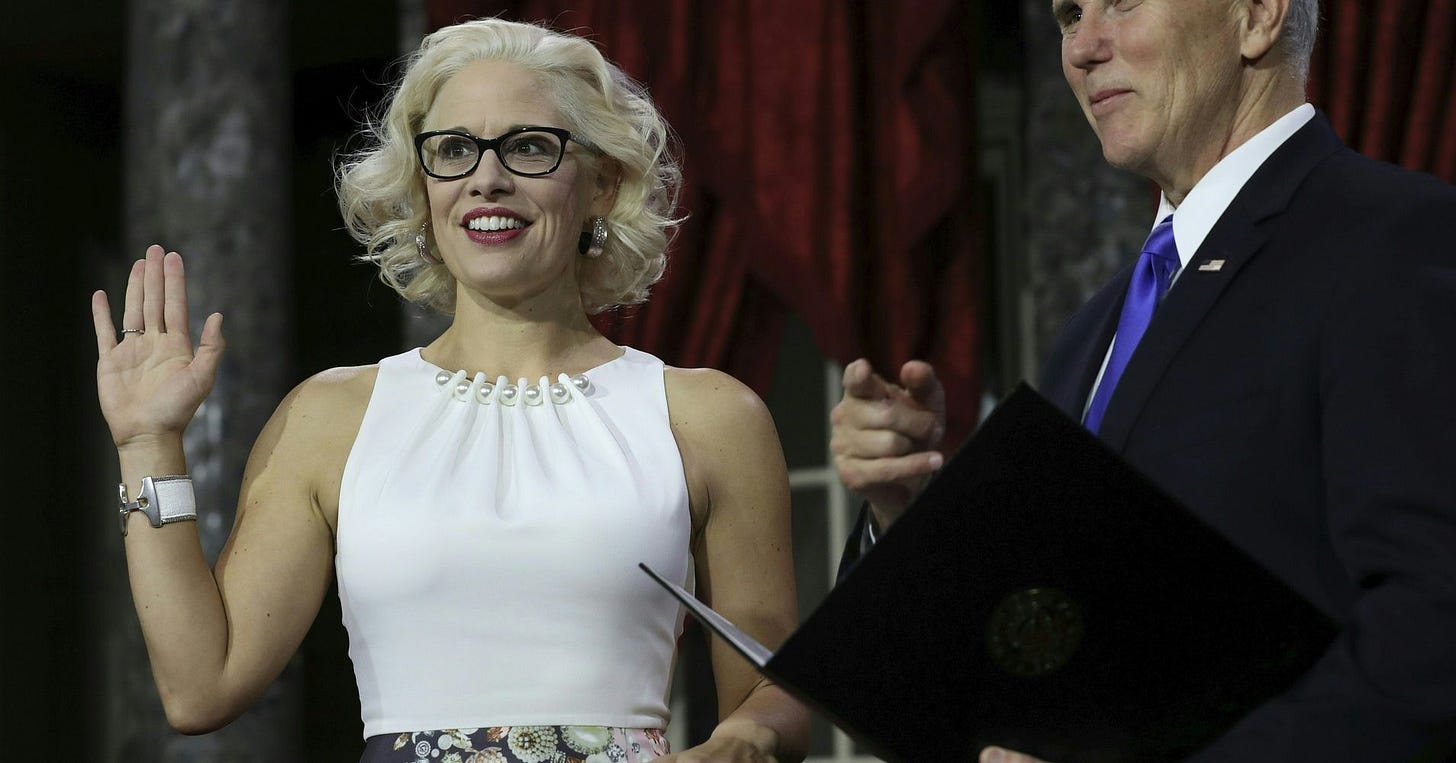Orwellian Boondoggles in Congress. Again.
Having just passed one massive $280 billion gift to a favored industry, Congress is about to pass another one totaling at least $739 billion. And they call it "The Inflation Reduction Act."
The nation’s oldest polling company, Gallup, periodically tests Americans’ confidence in our institutions. On July 5th, they published their latest. I bet the numbers won’t surprise you. While Americans continue to hold small businesses, our military, and the police in high esteem, Congress is ranked dead last.
Even nine of ten Democrats polled don’t have much confidence in an institution their party controls.
After the past week's events, Congress has likely cemented its position, shoes and all, as the institution in which Americans hold their lowest esteem. Congressional Democrats and a few Republicans embraced Soviet-style industrial policy with a favored industry - the silicon chip industry - while Senate Democrats agreed to establish a 15 percent “minimum tax” on corporations to help fund their “Green New Deal” and massively empower Americans’ favorite government agency, the Internal Revenue Service (IRS). Never mind that market forces are already moderating the demand for silicon chips.
I’m sorry, but I have difficulty supporting massive government subsidies for an industry that largely chose to move its factories overseas and now wants you and me to pay for them to return.
But wait, some of my fellow Medicare (government health insurance for people over 65) beneficiaries might say. The bill also gives the federal government the power to “negotiate” prescription drug prices! Be careful what you wish for. The government won’t “negotiate” anything. They will set the price. And pharma companies will stick others, including the Veterans Administration, with higher prescription drug prices to make up the difference. Medicare’s Part D prescription drug program has been doing a fine job utilizing private-sector companies to negotiate lower prices while ensuring the availability of medicines. From an American Enterprise Institute policy paper in 2007 (emphasis added):
Independent experts at both the Office of the Actuary at (the Deparment of Health and Human Services, HHS) and the Congressional Budget Office (CBO) have said that government involvement in price negotiation will not lead to lower costs for taxpayers. And it could lead to significant restrictions in access to drugs for seniors.
The private plans offering Medicare drug coverage are companies with decades of experience in negotiating prices – experience the government does not have. The plans negotiate drug prices for more than nine million people in the Federal Employees Health Benefits Program and for tens of millions of working Americans. And because these private plans are participating in Medicare, seniors can choose the drug plans that work best for them based on the benefit design that suits their needs.
Again, the federal government is taking over a job already performed well by the private sector. Their encroachment into total control of our health care system continues. Already, the federal government pays almost half of all medical bills in the US, from Medicare to Medicaid subsidies, from most military veterans to railroad retirees.
But wait, Democrats will claim, noting the title of the Schumer-Manchin spending bill that will only require 50 votes to pass (Kamala Harris will dutifully break any tie votes). Why? Because under budget rules, “reconciliation” bills are not subject to the Senate’s 60-vote supermajority filibuster rules (that’s how we got Obamacare). My regular reader of this blog will already know that.
Of course, the 50th vote is now Kyrsten Sinema, the enigmatic and ferociously independent Democratic Senator from Arizona who reportedly despises one tax increase provision of the Schumer-Manchin bill - a tax on “carried interest.” Also, the legislation needs to survive a “Byrd bath” from the Senate’s unscrupulously nonpartisan and fair-minded Parliamentarian, Elizabeth McDonough. Watch these spaces.
That’s another smoke-and-mirrors claim that the media will parrot - the bill won’t result in any new taxes for families making less than $400,000 annually and will reduce the deficit. Oh, and also reduce inflation. Like the Biden-Democratic $1.9 trillion Covid “stimulus” bill did in early 2021. And if you believe any of that, I have a bridge to sell you. Like this one, completed in 1926 and with a good revenue stream of $5 per vehicle fee to escape from New Jersey to Philadelphia, Pennsylvania. Make your check payable to “cash.” The Delaware River Port Authority will have no problem with the transaction. Just don’t mess with the name.

Senate Democratic leader Chuck Schumer, West Virginia’s Joe Manchin, Senate Budget Committee chair Bernie Sanders (I-VT), and all Senate Democrats claim the reconciliation tax-and-spend bill will reduce the deficit by over $300 billion. Aside from $14 billion from taxing “carried interest” of concern to Sen. Sinema’s venture capital friends, it includes a 15 percent corporate minimum tax on companies like Amazon and Apple, who tend to avoid paying corporate income taxes by plowing their profits back into their companies. Now, they get to plow their profits into government spending. Yay.
It also includes presumed savings from “lower” prescription drug prices for seniors totaling $288 billion. I’ve already discussed how that will likely work out. It’s nothing more than magical congressional math. Someone will pay.
And we know how companies treat taxes - a business cost passed on to consumers. Enjoy your higher Amazon Prime and iPhone costs, among many others. You will be paying for those higher corporate taxes, no matter your income. And Democrats, never ones to assume responsibility, will yell “corporate greed!” See: gasoline prices.
And let’s not pass over how the “reconciliation” bill distorts our energy markets. Manchin will claim credit for moderating provisions so that nuclear energy benefits from the enormous tax credits in the bill and leveling the playing field for the oil and gas industry on federal lands. Yay. But that barely masks the billions wasted on “green energy” boondoggles that steer us into energy grids that behave as Texas’ energy grid did during the winter of 2021. But buying a new or used electric car with a massive carbon footprint will be a little easier, thanks to a generous tax credit.
The November elections of 2022 and 2024 cannot come soon enough. The question is, can our nation make it through the next 30 months, and will there be enough voters choosing wisely to begin to repair the damage?
However, we can’t rely on voters like this, victims of our failed public education system.








